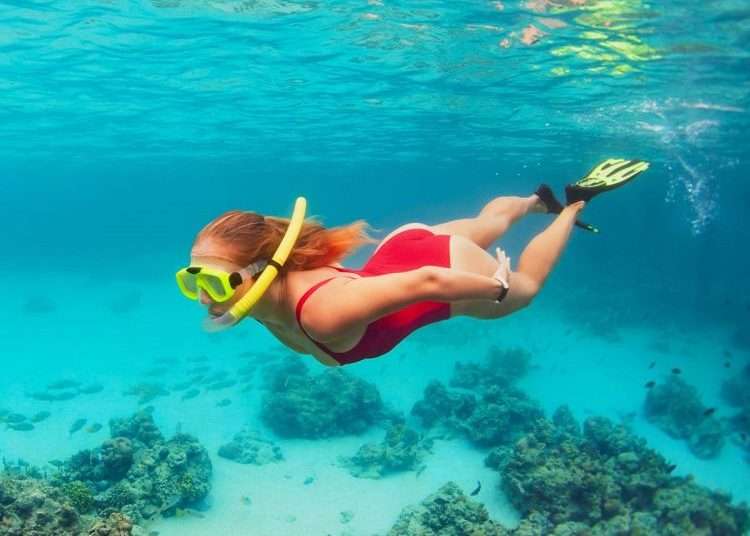The Bounce platform, specialized in tourism, selected Cuba as the third-best destination in the world to practice snorkeling, a type of diving that allows recreational exploration just below the surface of the ocean.
A study shared on its website and replicated by several media outlets analyzes which oceans and seas are the best for fans of this sport, based on factors such as coral reef areas, fish species and available tours of this modality, according to Prensa Latina (PL) news agency.
As a result of the investigation, Cuba obtained a rating of 7.14 points out of 10 and ranked in third place shared with the United States, and only behind Australia and the Maldives, the dispatch added.
The Bounce platform rates #Cuba as the 3rd best #diving destination in the world, when they analyzed the seas based on coral reefs, fish species and available snorkeling tours. https://t.co/vjjzGrAmED
— Cuba Business Report (@CubaReport) July 25, 2022
The Caribbean island obtained this endorsement thanks to the fact that it has an area of coral reefs of 3,020 square kilometers, around 1,103 species of fish, of which 44 are in danger of extinction.
In addition, it has 46 snorkeling excursions in the different points enabled for diving along its coasts, a 0% global emission of plastic waste and the temperature of the sea is rather constant, ranging between 27.5 and 30.53 degrees Celsius, PL noted.
Among the sites that stand out for this practice are the María la Gorda beach, at the western end of the island, the Bay of Pigs south of Matanzas, the coast of Jibacoa, one hour from Havana, and the seas of the keys to the north of the central-eastern region.
According to the Bounce platform, the first position corresponds to Australia, which is “home to the second largest area of coral reefs in the world, which is equivalent to 17.22% of the total coral reefs in the world,” says the report.
Meanwhile, the Maldives ranked second, hosting almost 3.14% of the total coral reefs on the planet, although the site highlighted the low temperature of the sea that requires equipment and a neoprene suit to dive in the place.
Nature, including its marine ecosystem, classifies among the most notable attractions that Cuba offers to tourists who visit it, especially for a segment that prefers experiences of this type, and that could contribute to the Cuban government’s intentions of receiving this year more than 2.5 million travelers.
The so-called smokeless industry is one of the island’s great bets in the face of the deep crisis it is going through, aggravated by the impact of the pandemic, the United States embargo on the island, and internal inefficiencies and difficulties.
According to official figures, tourism represents the second sector with the highest contribution to the Gross Domestic Product (GDP) of the country, and is also the second source of foreign currency income in terms of the volume it reports.










